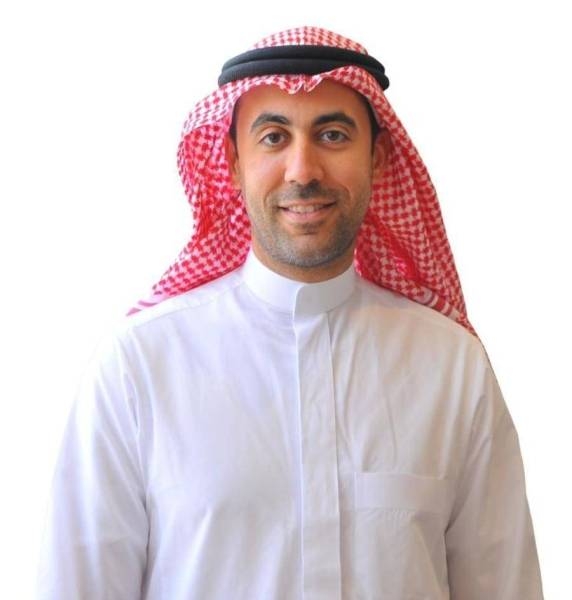
Global report finds women are set to inherit trillions of dollars over next decade
A substantial wealth transfer is set to happen over the next 20 years, with an estimated $15 trillion set to pass to the next generation
JEDDAH: As women increase their financial independence faster than ever before, adding $5 trillion dollars to the global wealth pool each year, this is leading to a change in family and banking dynamics, according to new research by Barclays Private Bank.
A substantial wealth transfer is set to happen over the next 20 years, with an estimated $15 trillion set to pass to the next generation. Research has estimated that four in five women from high-net-worth (HNW) families are getting ready to inherit substantial wealth over the next decade or two.
Rasha Badawi, director at Barclays Wealth and Investment Management in the Middle East said: “As traditional family roles change and more women hold prominent positions in international business, their growing global influence is going to be a major economic force over the next decade, redefining areas that have historically been focused on, and dominated by, men.”
A HNW individual is someone with at least $1 million in cash or assets that can easily be converted into cash.
The research investigating the role of women in wealth was conducted in the second quarter of 2020, targeting 402 HNW families with at least £5 million ($6.83 million) in assets and living in France, Germany, Hong Kong, India, Italy, Qatar, Saudi Arabia, Switzerland, Singapore, the UAE and the UK.
The research focused on women’s roles in succession planning, family business decision-making and how these roles contribute to shifting family and banking relationships.
Although a third of the world’s wealth is under women’s control today, four in ten wealthy women are currently not involved in the management of their family finances compared to only one in ten men.
Moreover, even those women who are involved in their family’s finances tend not to be the main decision-maker, with 83 percent of key financial decision-makers in HNW families being men.
This bias, common in Indian (76 percent) and Middle Eastern families (46 percent), derives from the traditional roles of women in these families. And due to women’s lack of involvement in the management of family finances, they tend to be significantly less interested in finance and investment. This also contributes to women being overlooked during financial conversations, research found.
“The tide across the Gulf is changing for women in ultra HNW families…We are seeing women take more leadership positions and become increasingly involved in all financial decisions,” said Rahim Daya, head of Barclays Private Bank for the UAE and Middle East.
The role of women within wealthy families is certainly evolving. Social and cultural change is prompting a shift in family and banking dynamics, with women now holding similar levels of direct ownership in family businesses (54 percent compared to 57 percent for men), and more HNW women achieving postgraduate qualifications, often at international institutions (43 percent), compared to the generation of their parents (14 percent).
The younger generations also have a less traditional outlook on life. Seventy-nine percent of those surveyed said that their parents hold traditional beliefs, but only a third of parents believed the same of their children.
Among women of all ages, 35 percent said that they do not have a traditional personal outlook on life, compared to 59 percent of men who admitted they do.
However, women also lack representation and remain largely underserved by the wealth-management community. Wealthy women are currently more than twice as likely as men to not have a financial adviser.
This is a consequence of male domination within the financial-advisory industry, making women feel uncertain or unheard. Around 60 percent of participants believe that women are treated differently to men by professional financial advisors, the Barclays study found.
HNW women said they are less likely than men to feel that their adviser understands their knowledge about investing and risk tolerance.
These obstacles are owing to the fact that the industry was traditionally curated for wealthy men and by professional men, meaning women were often excluded.
In the absence of any support, wealthy women are often less confident about making family financial decisions, prompting the need for banking relationship dynamics to change.
Around 60 percent of wealthy women are confident in making financial decisions for themselves, but among those not yet involved in family wealth management, confidence drops to 43 percent. In contrast, 78 percent of all men say that they feel confident in making financial decisions for their families.
The research suggested that changes within financial services are needed to better support the growing number of HNW women as they are inheriting more and more wealth and responsibility.
Therefore, wealth managers need to empower wealthy women and embrace their increasing power and influence.
Dr. Ylva Baeckstrom, a behavioral finance and gender expert, said: “The industry needs to overcome existing biases, work to deliver services and advice that are the equal of those presented to their male relatives and provide women with the base to support their role as global business leaders of the future.”












